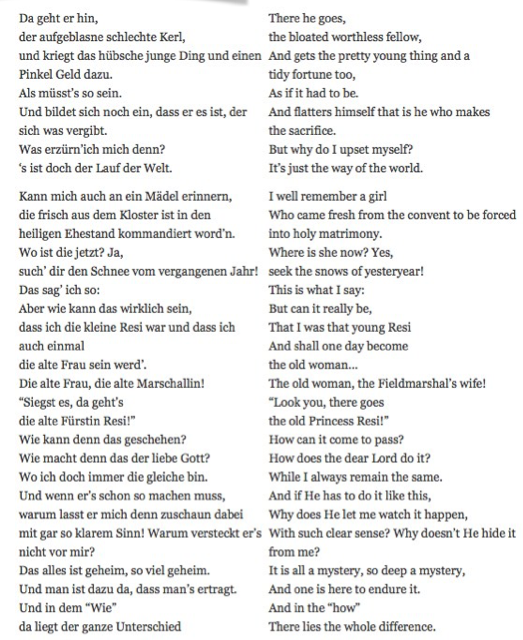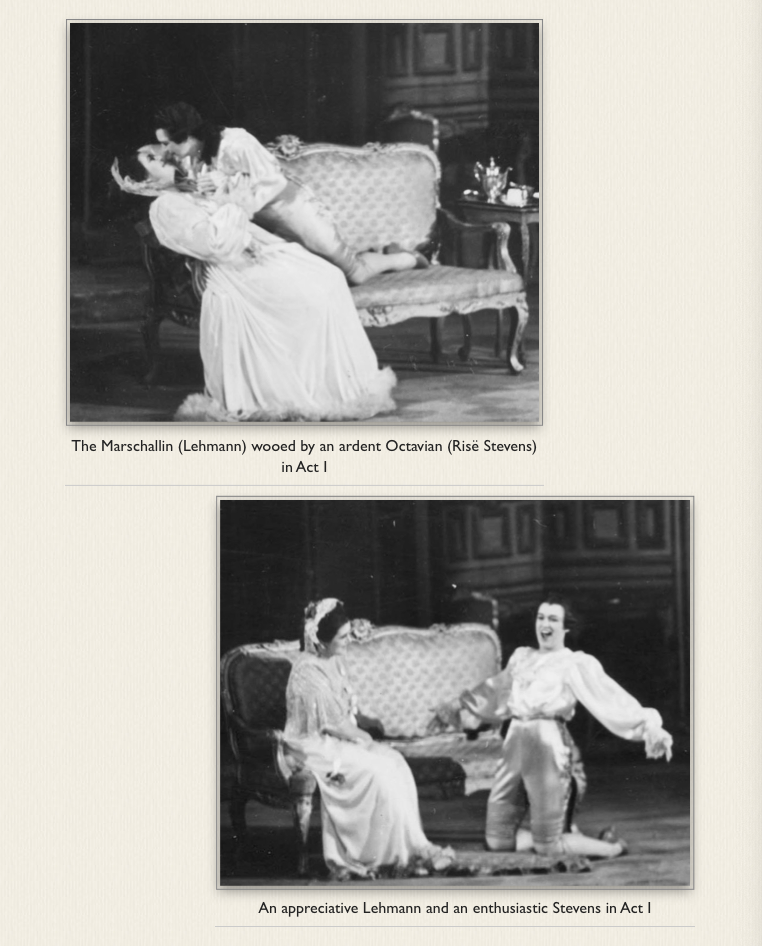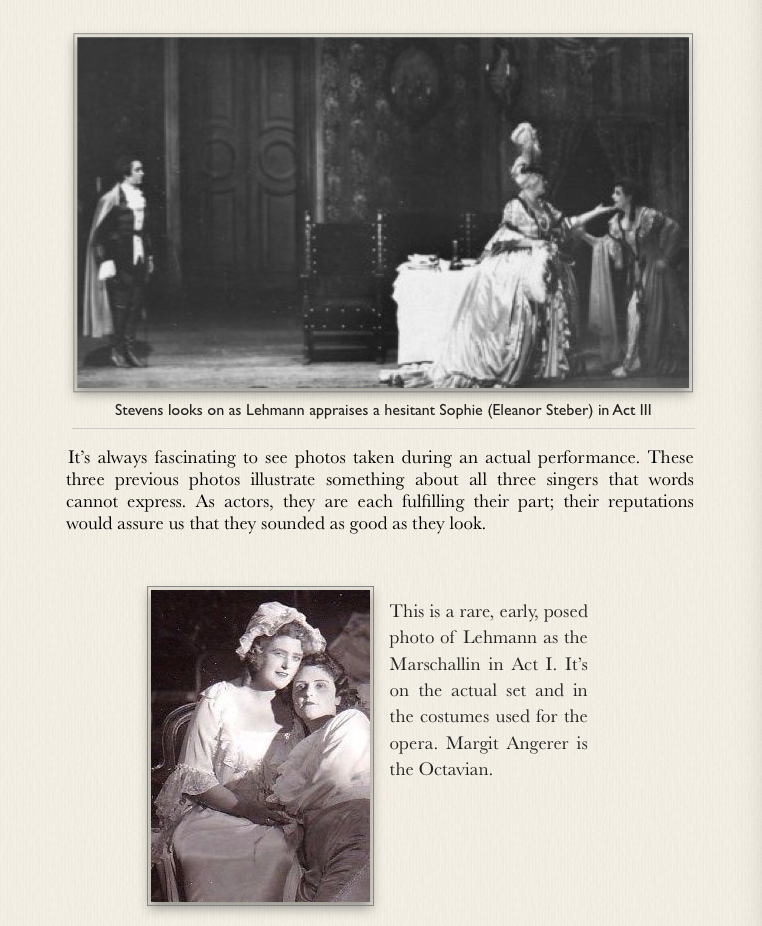Lotte Lehmann & Her Legacy: Volume 2
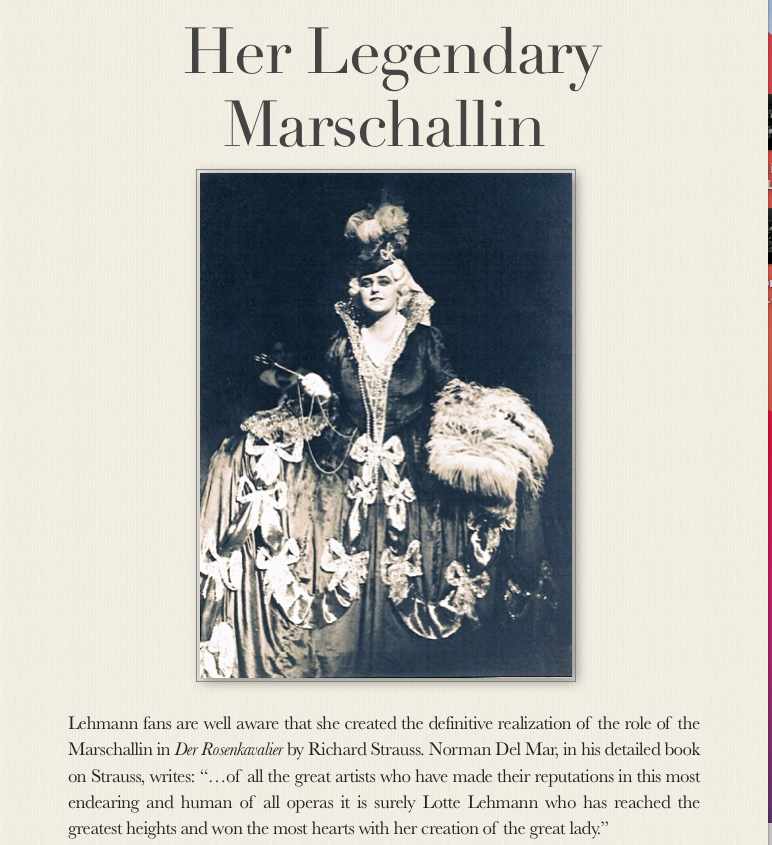
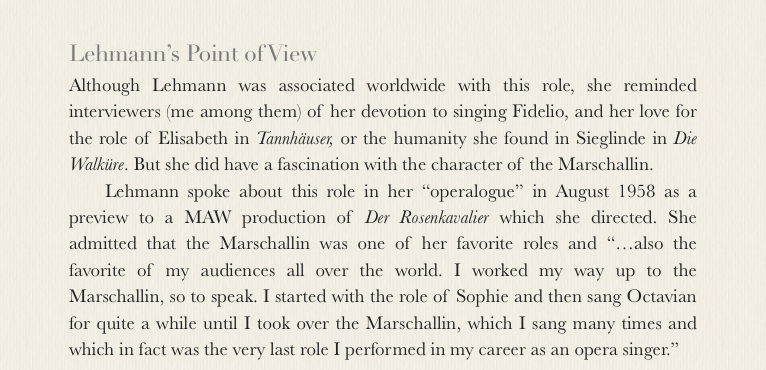
Here is a recording of Lehmann’s interview with Studs Terkel in which they discuss her 1924 debut as the Marschallin.
She sang the role of Marschallin for a long time (1924–1945) and even recorded a selection in 1925 (acoustic) soon after her 1924 debut in that role. She modestly remembers “fitting” into the dream cast in London. This recording captures the point when the Marschallin is alone at the end of Act I reflecting on time.
In 1927 she recorded another selection from Der Rosenkavalier with the newly invented microphone. She begins by trying to send Octavian (Quin-quin) away, but then turns philosophical.
Finally, for LP, Lehmann recorded parts of the Act I monologue, though spoken as an actress, but with the music of Strauss in her voice.
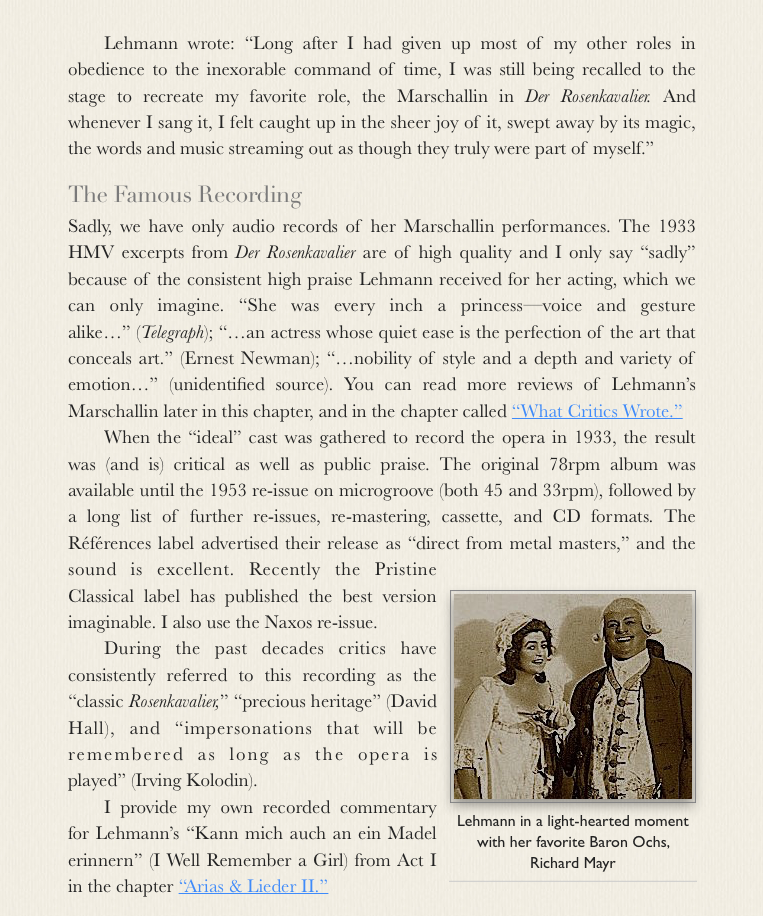
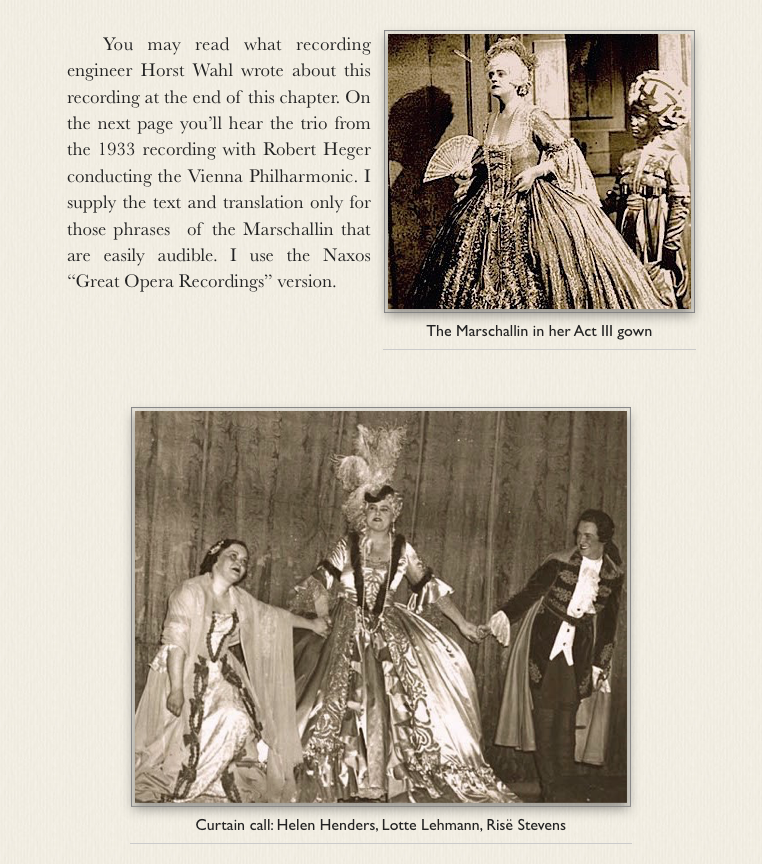
The justly famous trio from Act III opens with Lehmann in glorious voice. After a while her voice gets a bit lost within the texture of the other excellent voices (Elisabeth Schumann and Maria Olszewska). At the opening of the trio Octavian begins:
Marie Theres…
Then the Marschallin sings:
Hab’ mir’s gelobt, Ihn lieb zu haben in der richtigen Weis.
Dass ich selbst Sein Lieb’ zu einer andern
noch lieb hab! Hab’ mir freilich nicht gedacht,
dass es so bald mir auferlegt sollt’ werden!
(I vowed to myself to cherish him in the right way,
that I would even love his love for another woman!
I certainly did not think to myself
that it would so soon overtake me.)
The Marschallin emerges from the trio with:
Da steht der Bub und da steh’ ich,
und mit dem fremden Mädel dort
Wird Er so glücklich sein,
als wie halt Männer
Das Glücklichsein verstehen.
In Gottes Namen.*
(There stands the boy and here I stand
and with that strange girl there
he will be as happy
as men understand happiness.
In God’s name.)*
(*So be it or Amen. A blessing on the young couple, and a resignation by the Marschallin. It’s a realization of what she’s losing, not just in Octavian, but as she ages, all such lovely young men. She may be saying/singing this just to mask her hurt. Lehmann sings this phrase with a sadness in her voice.)

In this example from the Immortal Performances refurbished live Met performance of 1939, you’ll hear almost-spoken singing that really demonstrates Lehmann’s ease with the role and the person that she’s impersonating. This is the point in Act I where, after having her hair done, she looks in the mirror and accuses her hairdresser Hippolyte of making her look like an old woman. It’s sung, not as a hectoring accusation, but simply as fact and as she addresses her dear Hippolyte, the voice is regal but kind, loving, and addressed to someone she knows well.
At the end of this chapter you’ll find a video of Lehmann in a master class demonstrating the Act I monologue. Though she is dignified, she is also a woman, alone and facing, perhaps, the decline of her beauty.
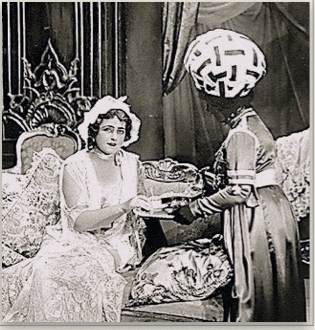
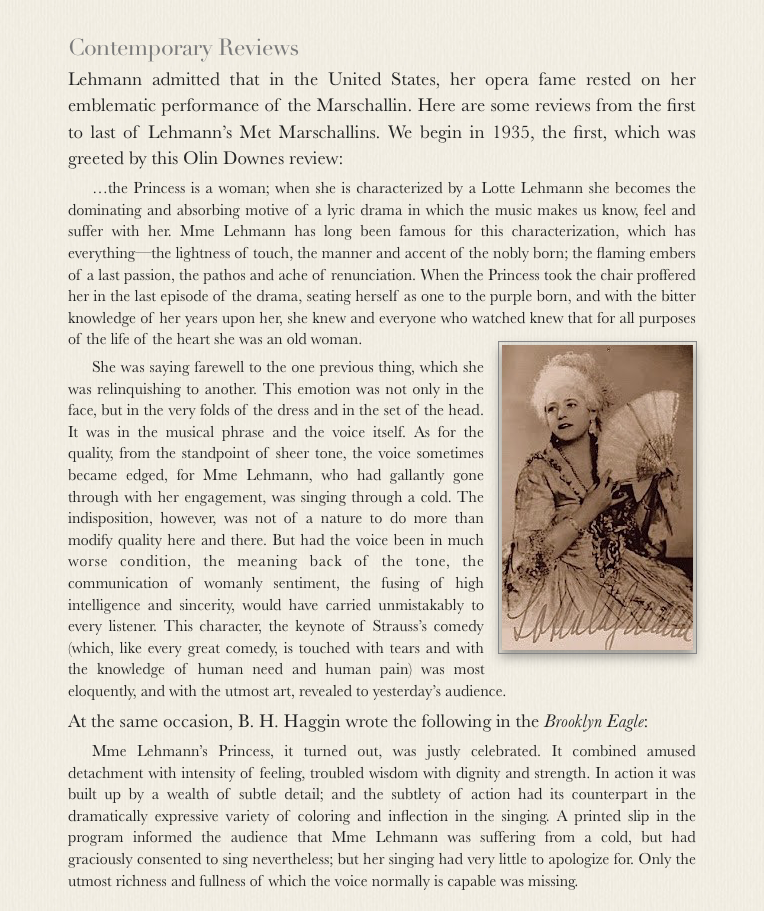
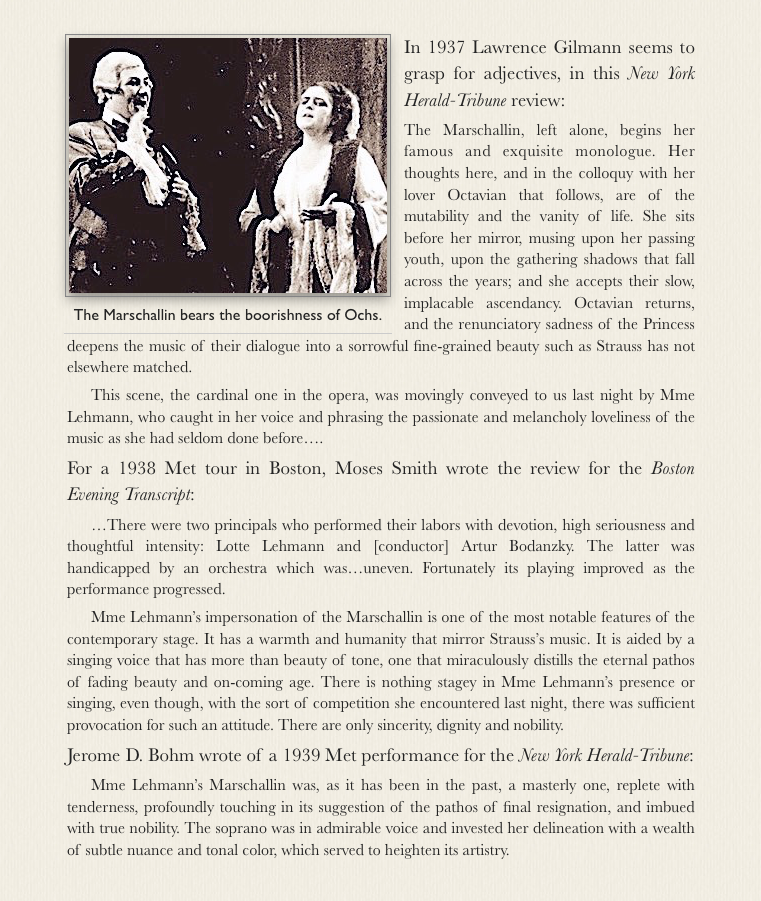
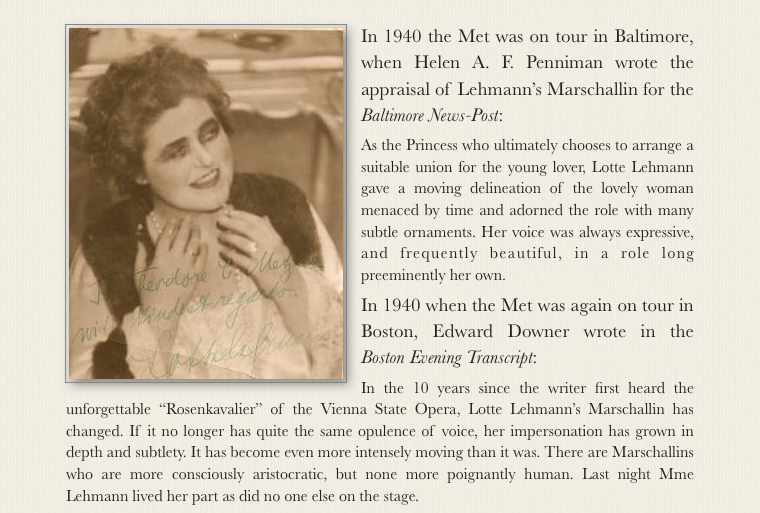
The final time Lehmann sang the Marschallin for the Met was 23 February 1945 and this was her only appearance there. Noel Straus wrote for The New York Times:
“The presence of Lotte Lehmann in the cast as the Marschallin aroused special interest, since this was her sole appearance of the season with the company. Hers was the outstanding portrayal in a presentation that moved with admirable smoothness and was replete with mood despite the fact that for the most part the singing was not of a particularly distinguished order.
Although Miss Lehmann’s voice possessed less volume than formerly and was used with caution on top tones, her every phrase was so replete with meaning and so deeply communicative that never has her artistry in the role worked with greater conviction or impressiveness. She has become familiar with every slightest detail of the part to such a pronounced degree that last night there wasn’t a moment when her portrayal failed to find her completely identified with the character of the Marschallin down to the slightest vocal inflection and gesture. There was all of the pathos of lost youth in the monologue before the mirror and particularly outstanding was the profoundly felt singing of the measures describing the stopping of the clocks in the castle. Surely, vocally as well as histrionically, Miss Lehmann’s Marschallin remains the most sensitive and deft achievement the Metropolitan has to offer its patrons today, and she fully deserved the prolonged ovation accorded her after the first act and at the last curtain.”
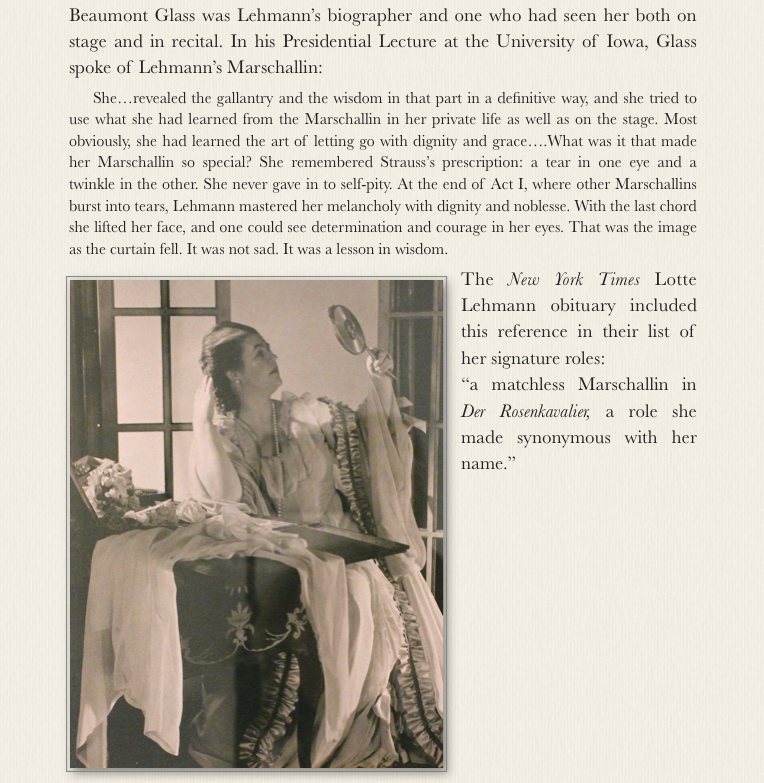

Lehmann was aware that she was often identified as the Marschallin and it is possible that she tried to live up to that great lady’s wisdom. That included knowing when to let go, as she mentions the following interview in which the Met’s John Gutmann addresses Lehmann as the Princess. At the end of the interview, she admits that she’d learned from the opera role.
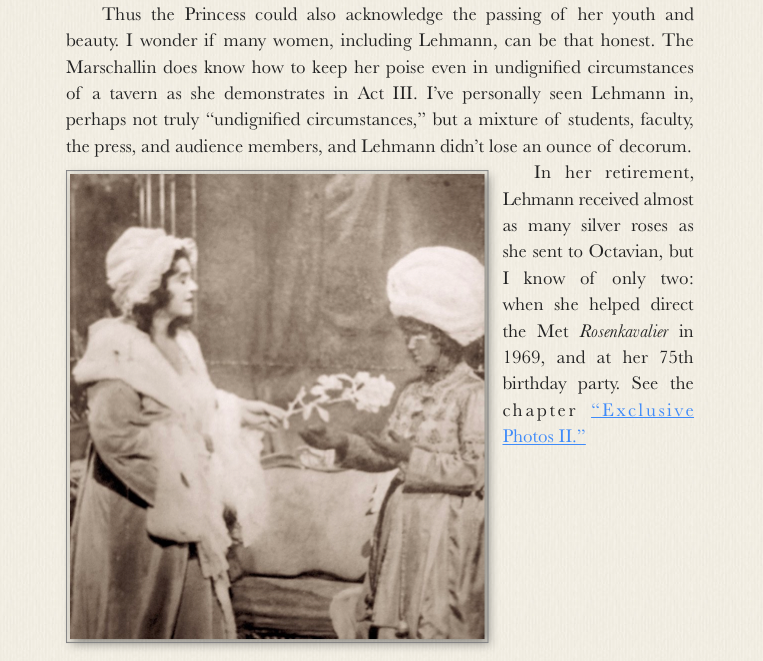
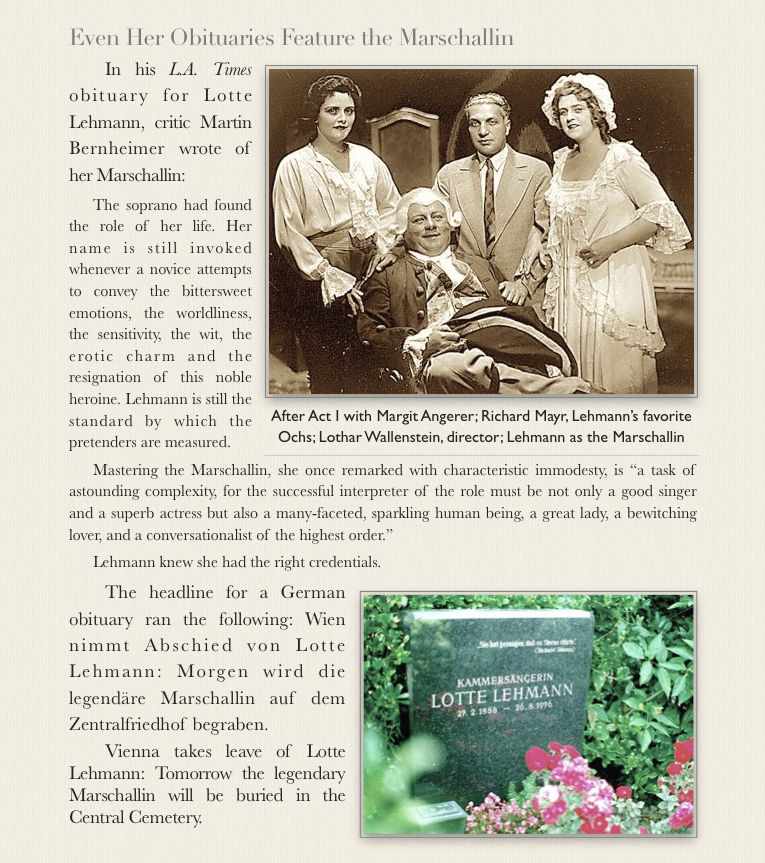
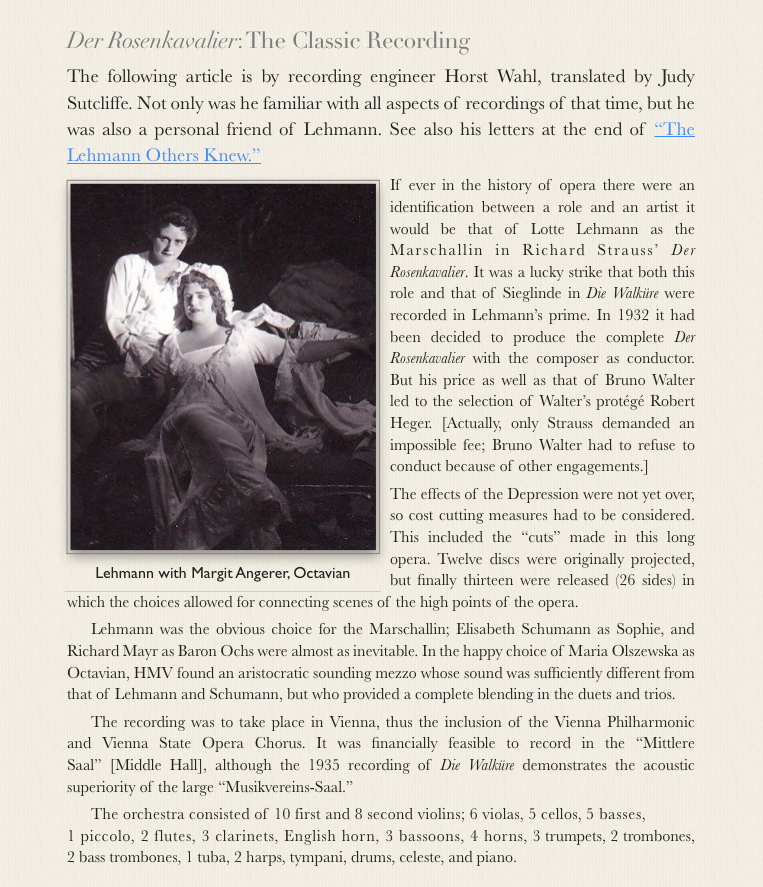
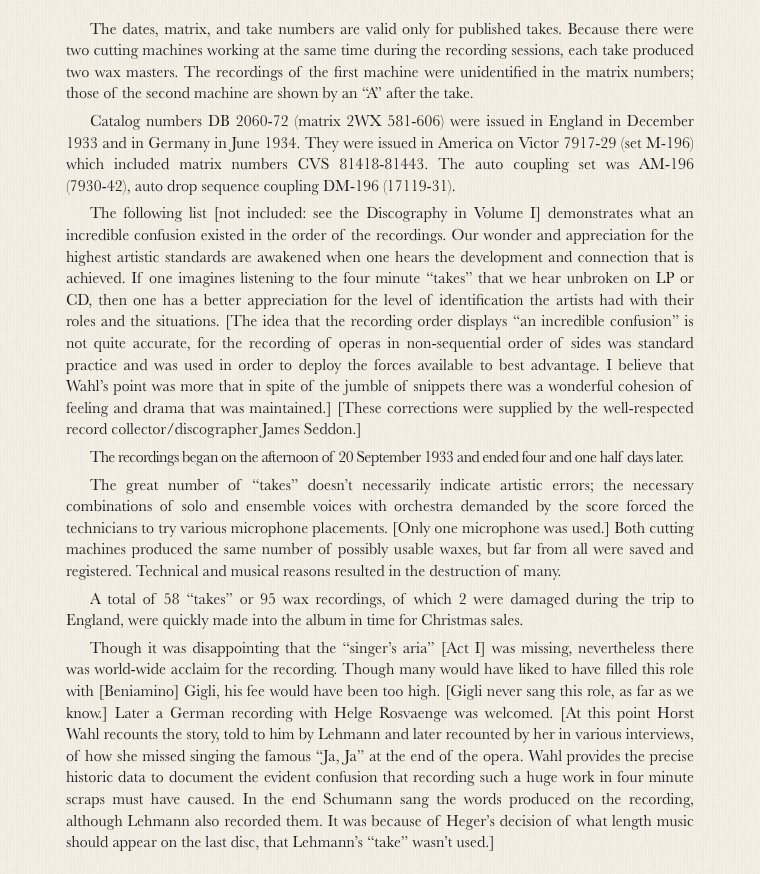
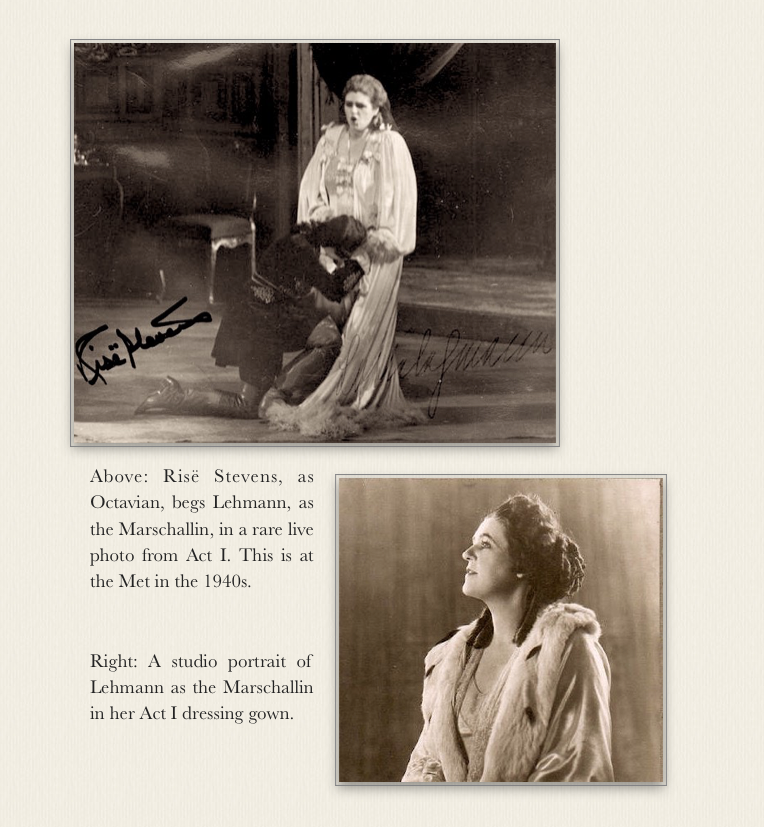
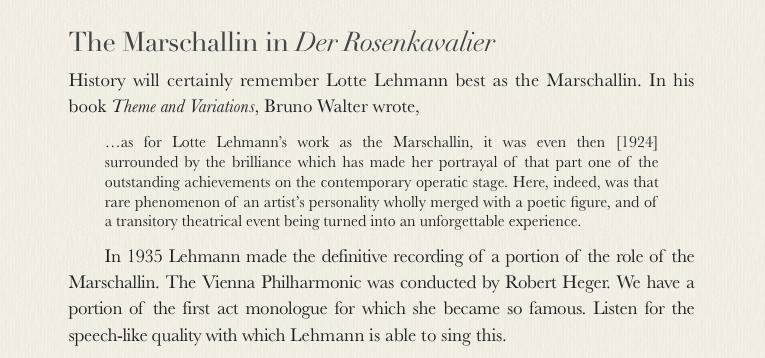
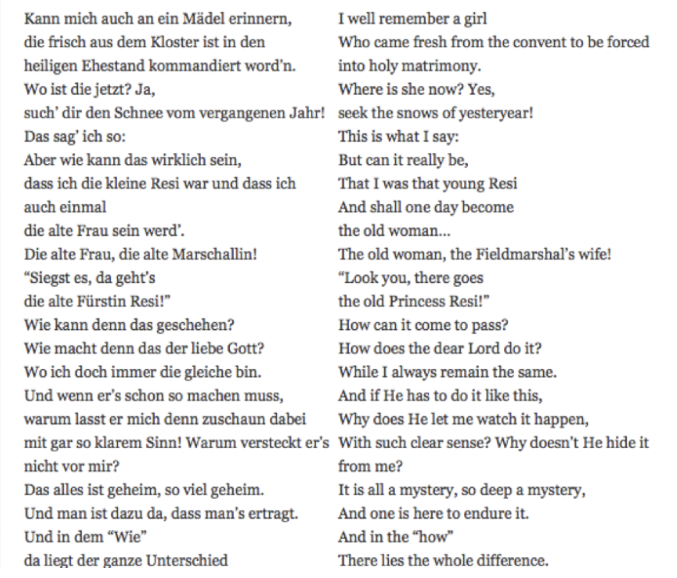
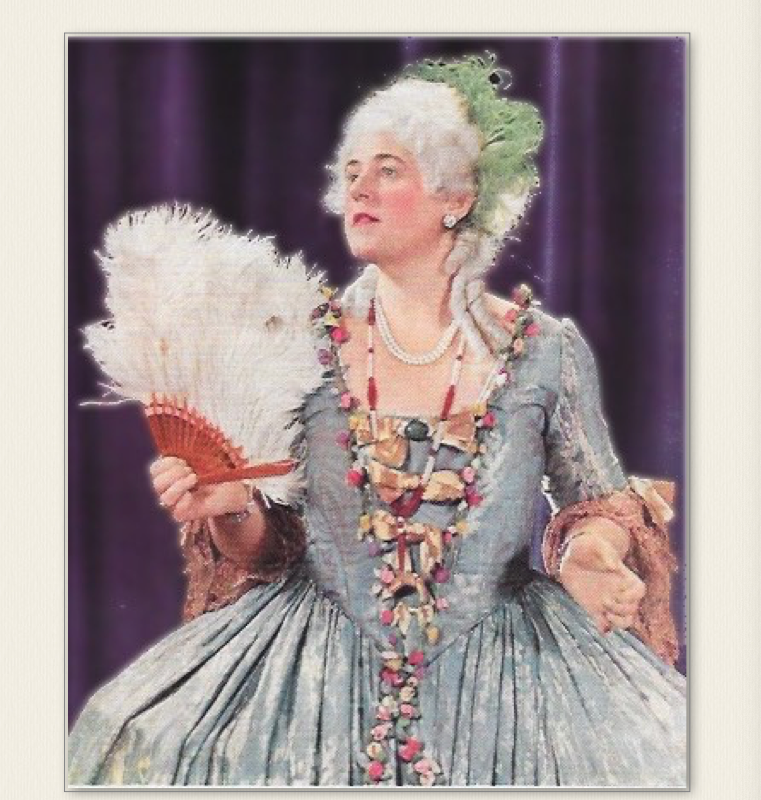
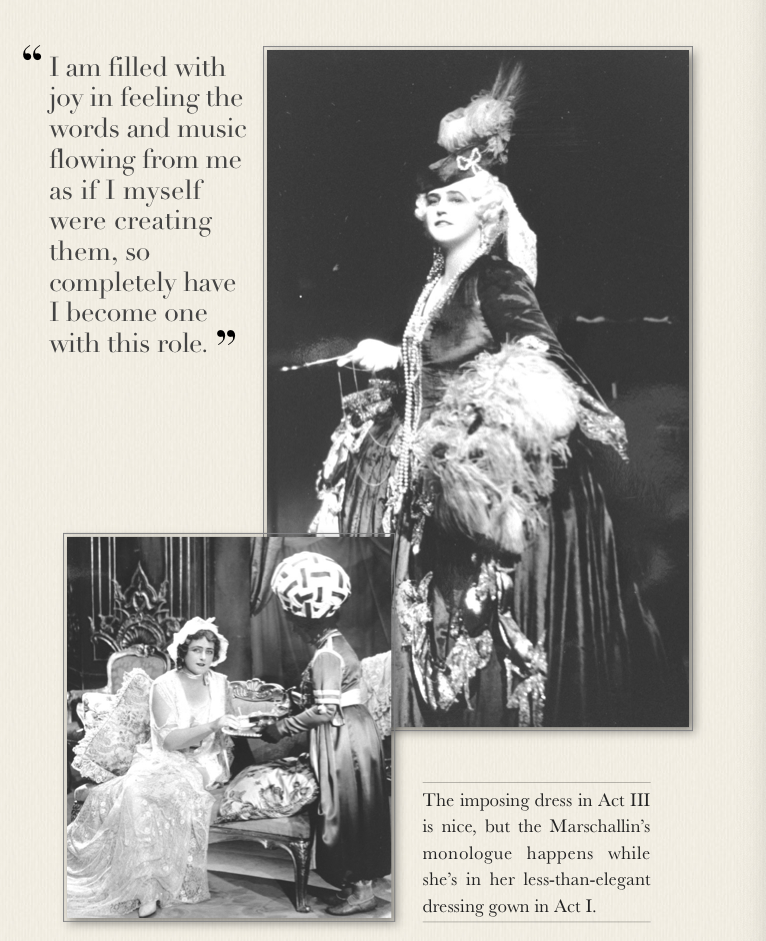
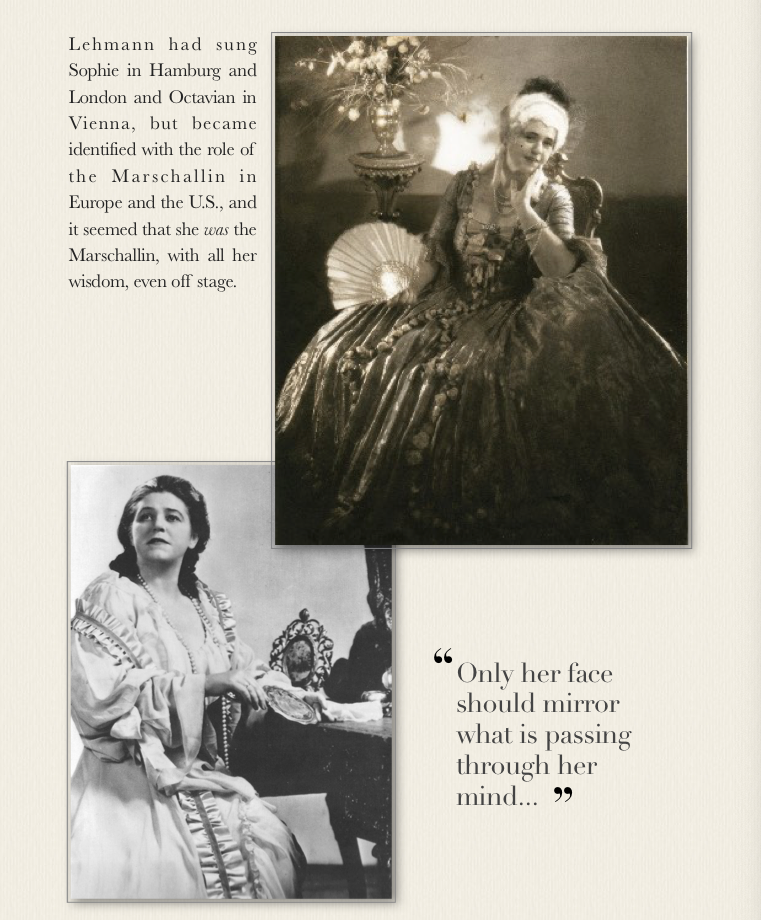
Lehmann demonstrates in a master class the extended monologue from Der Rosenkavalier, found below with the English translation. It’s an historic moment for the world to view a video of Lehmann as the Marschallin. Please enlarge the video for the best effect.
